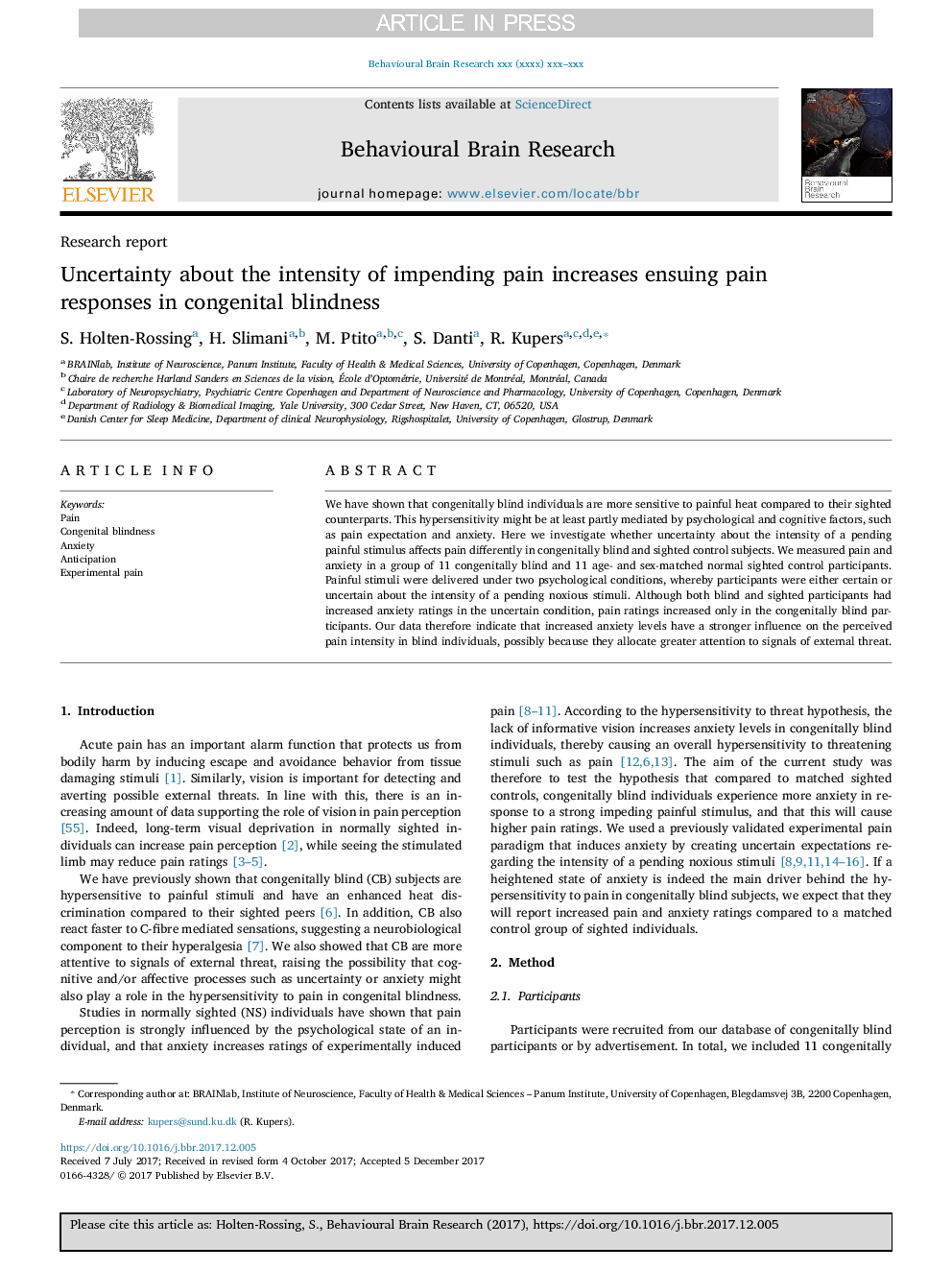ترجمه فارسی عنوان مقاله
عدم اطمینان در مورد شدت درد قریب الوقوع باعث افزایش پاسخ های درد در نابینایی مادرزادی می شود
عنوان انگلیسی
Uncertainty about the intensity of impending pain increases ensuing pain responses in congenital blindness
| کد مقاله | سال انتشار | تعداد صفحات مقاله انگلیسی |
|---|---|---|
| 124232 | 2018 | 6 صفحه PDF |
منبع

Publisher : Elsevier - Science Direct (الزویر - ساینس دایرکت)
Journal : Behavioural Brain Research, Volume 346, 2 July 2018, Pages 41-46
ترجمه کلمات کلیدی
درد، کوری مادرزادی، اضطراب، پیش بینی، درد تجربی،
کلمات کلیدی انگلیسی
Pain; Congenital blindness; Anxiety; Anticipation; Experimental pain;
ترجمه چکیده
ما نشان داده ایم که افراد کورکورانه نسبت به گرمای دردناک نسبت به همتایان دیدشان حساسیت بیشتری دارند. این حساسیت بیش از حد ممکن است حداقل تا حدی توسط عوامل روانشناختی و شناختی مانند انتظار درد و اضطراب بکار گرفته شود. در اینجا ما بررسی می کنیم که آیا عدم اطمینان در مورد شدت یک محرک دردناک در معرض درد به صورت متفاوتی در افراد کنترل کننده مادرزادی کور و بینایی تاثیر می گذارد. ما درد و اضطراب را در یک گروه از 11 کاندید و 11 سن و جنس همجنسگرایان شرکت کننده در کنترل منظم اندازه گیری کردیم. محرک های دردناک تحت دو شرایط روحی قرار می گیرند، که در نتیجه آنها مشکلی یا شدید در مورد شدت یک محرک در معرض خطر هستند. هرچند که شرکت کنندگان نابینا و بیننده در رتبه های اضطراب در وضعیت نامعلوم افزایش یافته اند، اما میزان درد در شرکت های زایمان زودرس افزایش می یابد. داده های ما نشان می دهد که افزایش سطوح اضطراب تاثیر شدیدی بر شدت درد درک شده در افراد نابینا دارد، احتمالا به این دلیل که توجه بیشتری به سیگنال های تهدید خارجی می شود.

